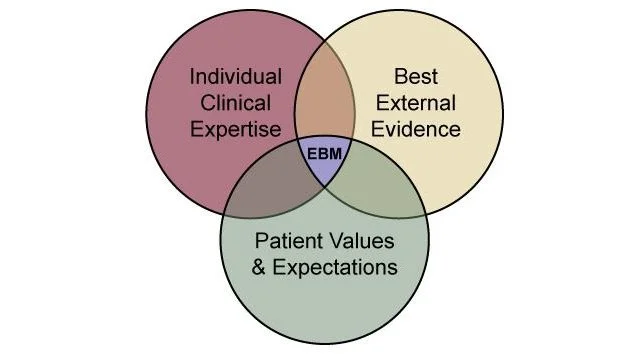Resources to help patients and doctors collaborate
In my previous post on the "Five Second Rule", I touched briefly on shared medical decision making. I will make a few other observations and recommendations in this post, since I think this is one of the most important and least understood aspects of the relationship between a patient & his/her doctor.
We all make decisions based on our perceptions of risk and benefit, but many times we rely on inadequate or even incorrect information. This is why medical studies are important to doctors, since they analyze data about results from similar patients. This concept is called Evidence Based Medicine. I often have discussions with patients who have come to believe that a certain test, treatment or medicine is unwise based on information from unreliable sources, such as glib comments from medical talk shows, entertainment celebs or the experience of friends. Those sources of information can only inform you about what your experience may (or may not) be, if you make a certain choice. All of us should look for information from reliable sources (I have listed some in the Recommended Health Information topic in the right column), and not be overly influenced by opinion or advertising.
But how to be sure that a medical decision is right for a specific person? It's not easy; for most conditions there are several reasonable choices with different amounts of risk & benefits, and no clear advantage of a single option. The first step is a discussion with your personal physician(s), who will have the details of your health, and can apply them to general medical practices. Unfortunately, many of us (doctors) aren't skilled at helping patients make the right decisions -- we don't allot enough time, don't listen, are unnerved when patients ask difficult questions or dispute our opinions. To my colleagues I say -- get over it, it's your job.
But patients aren't off the hook either. Are you spending time getting quality information about your health? Do you know at least as much about your own body (health literacy) as you do about football or cooking? When a medical problem arises, I frequently get asked to refer to a distant but well known medical center, when good care (from doctors I trust) is available locally.
So it is exciting that tools for medical decision-making are becoming more available for doctors & their patients to analyze & share decisions. I have several listed in the Medical Decision Making topic in the column to the right. One of the comprehensive lists has been assembled by the Ottawa Hospital Research Institute. Their criteria are:
Designed to help people make specific choices, by providing information on the options and outcomes that are relevant to a patient's own health, and clarify personal values.
Used for consulting with the patient's doctor.
Up to date, within 5 years.
Provide references to scientific evidence used.
Publicly available.
Another resource is the Mayo Clinic, which sponsors a National Resource Center for Shared Decision Making, with several topics that can use personalized patient data to clarify likely outcomes from options.

